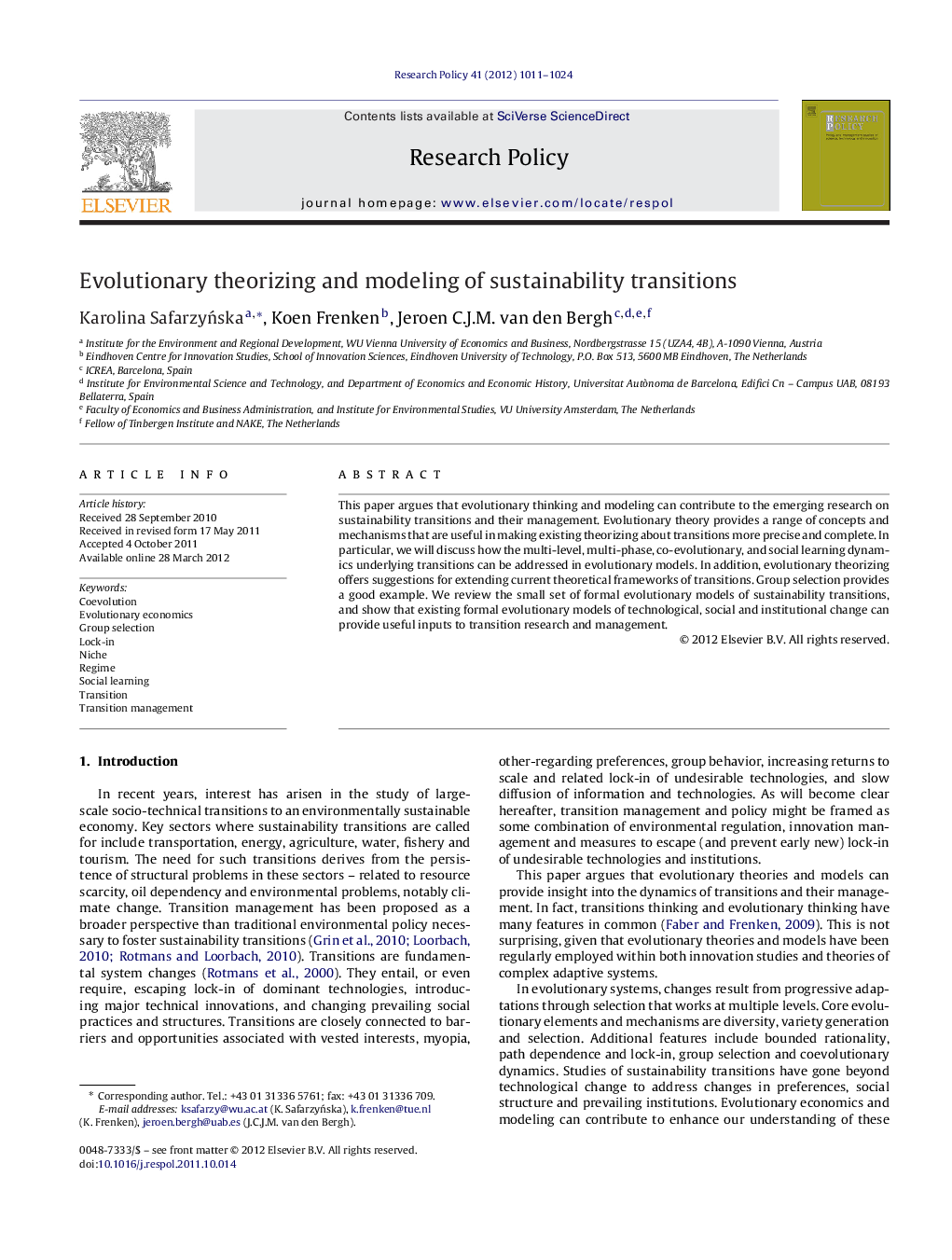| Article ID | Journal | Published Year | Pages | File Type |
|---|---|---|---|---|
| 984971 | Research Policy | 2012 | 14 Pages |
This paper argues that evolutionary thinking and modeling can contribute to the emerging research on sustainability transitions and their management. Evolutionary theory provides a range of concepts and mechanisms that are useful in making existing theorizing about transitions more precise and complete. In particular, we will discuss how the multi-level, multi-phase, co-evolutionary, and social learning dynamics underlying transitions can be addressed in evolutionary models. In addition, evolutionary theorizing offers suggestions for extending current theoretical frameworks of transitions. Group selection provides a good example. We review the small set of formal evolutionary models of sustainability transitions, and show that existing formal evolutionary models of technological, social and institutional change can provide useful inputs to transition research and management.
► Evolutionary modeling makes theorizing about transitions more precise and complete. ► Evolutionary concepts and mechanisms useful to study transitions are discussed. ► We examine multi-level/phase aspects of transitions, coevolution, learning, and group selection. ► We review evolutionary models with partial and complete perspective on transitions.
